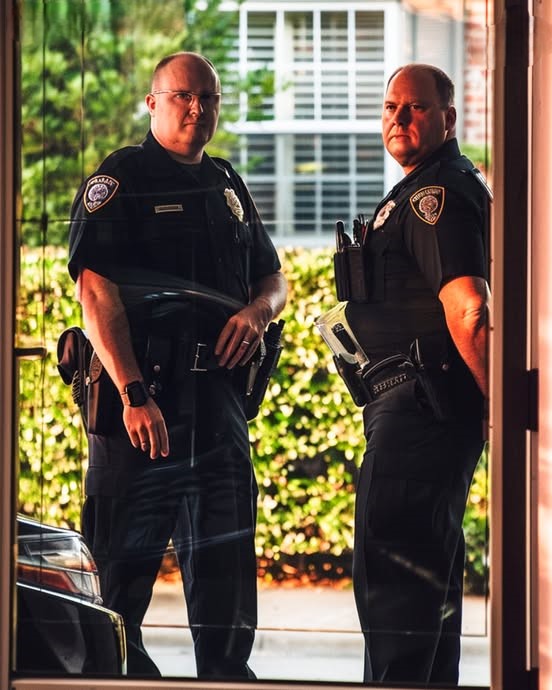With heavy hearts, we share a deeply emotional story—one that forever changed the lives of those involved. For over seven fulfilling years, I cared for Mrs. Patterson, an elderly and affluent woman whose warmth and generosity shone despite the deep loneliness she endured. Though her grand estate sat atop a lush green hill, surrounded by sprawling gardens tended by devoted staff, within its walls, Mrs. Patterson felt forgotten by the very people who should have cherished her most—her own family.
When I first met her, I was simply her caretaker, responsible for ensuring her comfort and well-being. I never imagined that our relationship would grow into something so profound or that she would become the family I had longed for after losing my parents at a young age. Over the years, we formed an unbreakable bond, spending our days baking her favorite apple pies, playing lively rounds of Scrabble, and sharing laughter and heartfelt conversations.
Her actual family, however, rarely visited, and when they did, their presence felt hollow—brief, polite, and motivated solely by appearances rather than genuine affection. Mrs. Patterson would watch them leave through the window, softly tapping the glass, silently hoping they might turn back. But they never did.
One rainy afternoon, as we sat by the window watching raindrops slide down the glass, she gently took my hand. “Grace, you are the only person who has truly cared for me,” she murmured. Her words tightened my throat with emotion. Squeezing her hand, I whispered back, “You don’t have to thank me—you’re my family now.” She smiled warmly, and from that moment on, our bond deepened even further, rooted in love, trust, and companionship.
But beneath her gentle nature, Mrs. Patterson seemed to sense that her time was drawing near. Not long after, I found her one morning, peacefully resting in bed, her expression serene, a cherished photograph of her late husband clutched in her hand. My heart shattered as I knelt beside her, overwhelmed by grief and the painful realization that she was gone.
I immediately contacted her children, their numbers carefully kept at her insistence. Their responses were cold, indifferent, and impatient, promising to “handle everything.” The funeral was a disheartening affair—filled with rehearsed condolences, hollow embraces, and false grief. Their eyes held not sorrow, but expectation—anticipating an inheritance rather than mourning a loss.
That evening, as I sat in my small apartment, lost in grief, a sudden, firm knock at the door startled me. Two solemn police officers stood on my doorstep. My heart pounded. Had something gone wrong? Had I failed her in some way? Panic gripped me as I followed them back to her estate, where her family was already gathered, accompanied by a lawyer, a notary, and security personnel. The air was thick with tension.
The moment I stepped inside, Mrs. Patterson’s daughter, Victoria, turned on me, her voice sharp with accusation. “She manipulated my mother! This was her plan all along!” she shrieked, her face contorted with rage.
Frozen in shock, I could only listen as the lawyer stepped forward, holding a sealed document—Mrs. Patterson’s will. In a steady voice, he began to read:
“To my children, I leave forgiveness, for they abandoned me long ago.”
A stunned silence filled the room. Victoria’s face drained of color, while her brother Mark clenched his fists.
“To my grandchildren, I leave my sincere hope that they will one day understand the true meaning of love, compassion, and loyalty.”
Confusion replaced their greedy anticipation. And then, the words that changed everything:
“To Grace, my beloved caretaker—my dear friend, the daughter of my heart—I leave all that I possess: my home, my lands, my wealth. Everything I have now belongs to her.”
The room erupted in chaos. Victoria screamed in disbelief, hurling accusations of deceit. Mark lunged toward me in fury, only to be restrained by security, as if Mrs. Patterson had predicted their reaction. And indeed, she had. The lawyer revealed that she had left behind undeniable proof—letters, photographs, and meticulous records—documenting the authenticity of our bond and her decision.
A small wooden box was placed in my hands, filled with precious memories—snapshots of our quiet moments, our shared laughter, our simple yet profound connection. Tears blurred my vision as I realized why she had cherished these keepsakes.
With no grounds to contest the will, her family’s rage was reduced to empty threats. They were escorted from the estate, leaving behind only their regret.
Standing alone in the now-quiet mansion, I clutched the box to my chest, overwhelmed yet deeply grateful. The lawyer handed me the keys, his voice gentle. “She wanted you to have more than just a house—she wanted you to have a home.”
As I wandered through the grand halls, memories of Mrs. Patterson’s laughter and warmth surrounded me. Even in her absence, she had given me something priceless—a place to belong, a love that endured beyond life, and a heart forever filled with gratitude.
Her family, once consumed by greed, was left with nothing but their remorse. But I, the woman who had simply cared, had been given the greatest gift of all—a family, a legacy of love, and a home filled with memories that would never fade.
